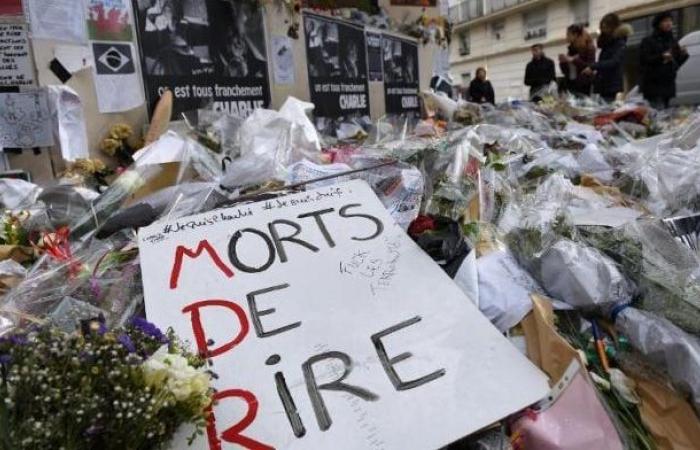It was exactly a month ago. On December 7, three students – in computer science, psychology and chemistry – were indicted for “criminal terrorist associations”, suspected of having planned a terrorist attack on the territory. No target had been arrested but they raised, in their discussions, the possibility of attacking the headquarters of the DGSI or the town hall of Poitiers using explosive devices, in reference to the battle of 732 where Charles Martel repulsed the Saracens. This project was the ninth and final violent attack project targeting France in 2024.
“Since 2017, this is the largest number of foiled attacks”, indicated this Tuesday the Minister of the Interior, Bruno Retailleau, in an interview given to Parisian on the occasion of the 10th anniversary of the attacks targeting Charlie Hebdo and Hypercacher. And to insist: “The terrorist threat has never been so present.” An observation also drawn up by the National Anti-Terrorism Prosecutor's Office (Pnat): in December, it specified that the number of procedures opened “in matters of jihadist litigation” had increased by 55%, going from 38 in 2023 to around sixty last year.
“Implementation of suitable systems”
This increase can be explained in particular by the organization last summer in Paris of the Olympic Games – three of the foiled projects were aimed at this event – but also by the international context and in particular the war between Hamas and Israel. “The terrorist threat has never disappeared, it has been very strong for more than ten years, but the Hamas attack in Israel contributed to the worsening of the situation,” analyzes a specialized source. The evolution of the situation in Syria, after the overthrow of the Bashar al-Assad regime, is also being observed very closely by anti-terrorism actors. In this troubled context, the possible recomposition of the Islamic State or the emergence of competing terrorist groups is being carefully monitored.
Monday, in a note sent to the prefects that 20 Minutes was able to consult, Bruno Retailleau called on them to be extra vigilant, particularly during large gatherings. Expressly referring to the car-ramming attacks that targeted a Christmas market in Germany and New Orleans on New Year's Eve, he calls on them to ensure “the implementation of appropriate systems to protect against terrorist attacks and guarantee security”: access filtering, video protection, traffic plan… Since March 2023 and the attack which targeted a concert hall in Moscow, the Vigipirate plan is already at its maximum: “emergency attack”.
From planned action to a more individualistic logic
If ten years after the deadliest wave of attacks that France has known, the threat remains at its height, it has nevertheless evolved. The year 2015 was marked by a logic of commandos projected – that is to say remotely guided – from abroad: the Iraqi-Syrian zone for the attacks claimed by the Islamic State, Yemen for the Kouachi brothers, perpetrators of the killing of Charlie Hebdo. “The weakening of these groups, and in particular of IS, makes this model less significant. They no longer have the same financial and human resources to mount operations like those of November 13,” a security source recently confided.
From now on, these terrorist groups are distinguished by their ability to recruit French nationals remotely, particularly on social networks, and to push them to carry out violent actions individually or within very small groups. Mass killing with weapons of war is no longer the predominant model: expensive, requiring connections to obtain equipment, longer to set up… it is more easily detected by specialized services. Terrorist groups therefore push candidates for jihad towards local actions, with knives or a ram vehicle.
Younger and younger profiles
Anti-terrorism players have also unanimously noted a rejuvenation of profiles. The three young men arrested in December were 19 and 20 years old. In March, a 14-year-old teenager, suspected of planning an attack against a shopping center in Lille, was indicted for “terrorist criminal association”. The same month, three other minors were arrested by the DGSI: they were linked to Belgians who were planning an attack against a concert hall in Brussels.
Our file on the fight against terrorism
“While just a few years ago, minors indicted in terrorist matters could be counted on the fingers of one hand, we had 15 in 2023 and 18 in 2024,” detailed the PNAT in December. AFP.






